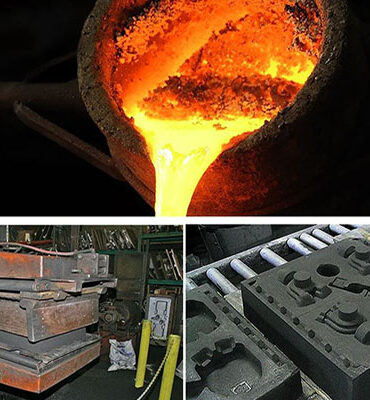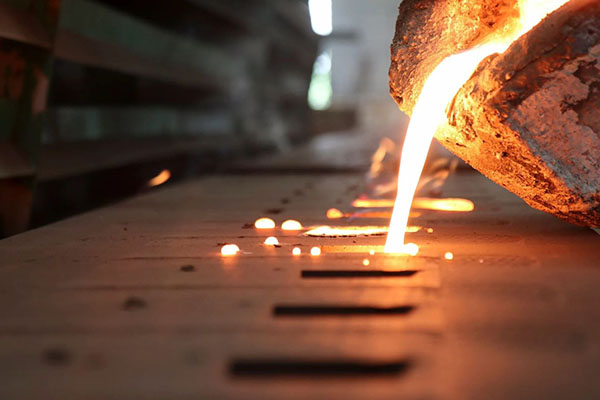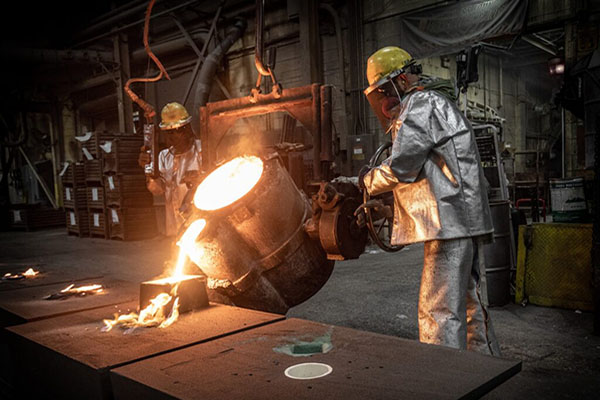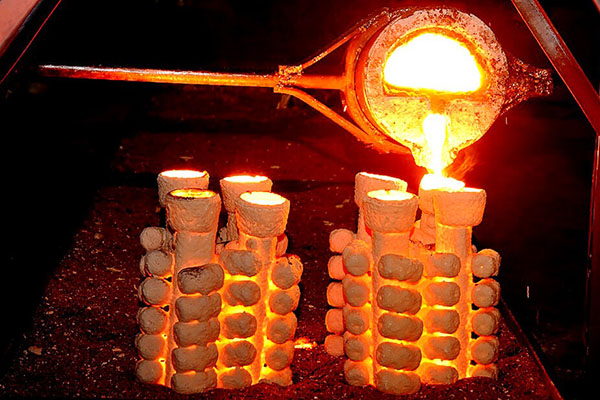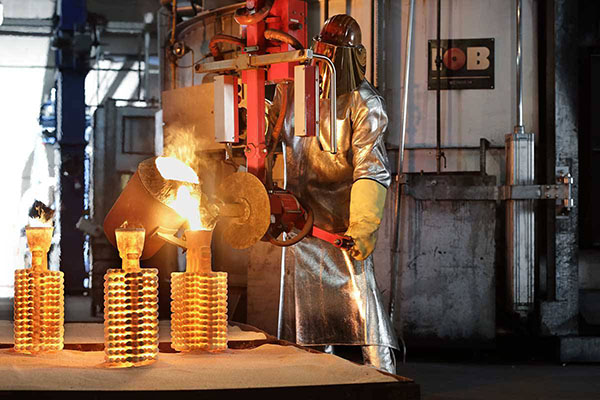Aluminum sand casting is a widely adopted, cost-effective method for producing intricate metal components. The process involves pouring molten aluminum into sand molds to create the desired parts. For a deeper understanding of aluminum sand casting, join GTR Vietnam Casting in exploring the method, benefits, and applications of this casting process in the article below.
What is aluminum sand casting?
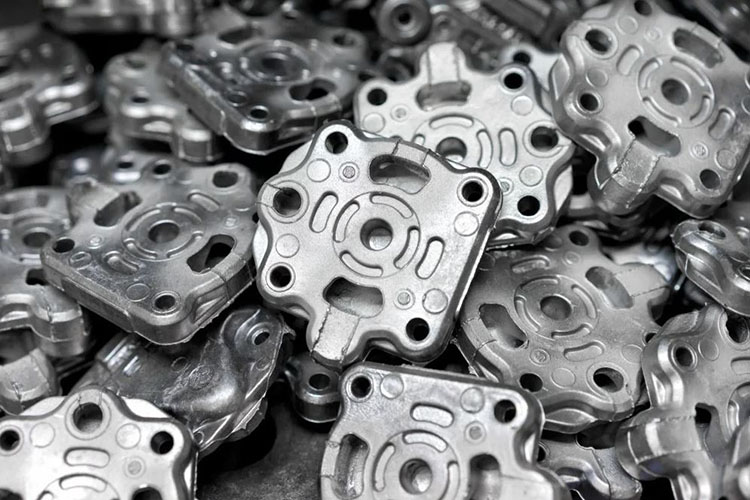
Aluminum sand casting is a versatile manufacturing process employed to produce intricate components. The process begins with pattern making, where a model of the desired part is created. Subsequently, a mold is formed by placing the pattern within a sand-filled flask. A variety of binding agents, such as dry sand, resin sand, water glass, green sand, and sodium silicate, are used to create the mold. Once the mold is prepared, molten aluminum is poured into the mold through gates and risers. After the aluminum solidifies and cools, the casting is removed from the mold through mold breaking.
Selecting the right aluminum alloy
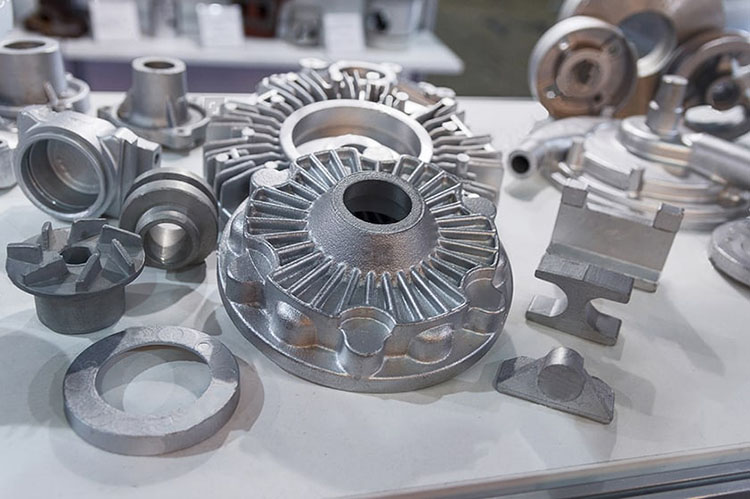
Aluminum alloys come in various types with different characteristics and performance, such as strength, hardness, ductility, corrosion resistance, and thermal conductivity. The selection of a suitable aluminum alloy depends on the specific requirements of each project to achieve the desired casting product.
Common aluminum alloys used for sand casting include the 356, 2014, and 6061 series. The 356 series offers high strength and excellent corrosion resistance. The 2014 series is known for its good strength and toughness. Meanwhile, the 6061 series stands out for its versatility, strength, and effective corrosion resistance, making it suitable for applications in many modern industries.
Depending on specific project requirements – such as load-bearing capacity, durability, corrosion resistance, and finish quality – a suitable aluminum alloy should be selected accordingly.
Advantages of aluminum sand casting
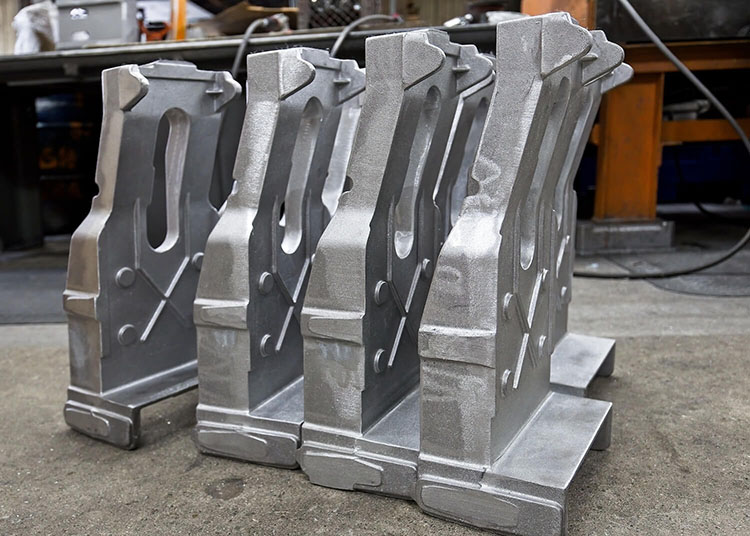
Aluminum sand casting is a widely adopted metal manufacturing process due to several advantages:
- Lightweight: Aluminum alloys are significantly lighter than many other metals, making aluminum castings an ideal choice for applications in the automotive and aerospace industries.
- Corrosion resistance: Aluminum and its alloys exhibit excellent corrosion resistance.
- Recyclability: Aluminum alloys can be recycled infinitely without losing their properties, making them an environmentally friendly option.
Applications of aluminum sand casting
Aluminum sand casting products are widely used in various industries such as:
- Automotive: Engine components, housings, and lightweight structural parts.
- Aerospace: Precision-engineered parts for aircraft and spacecraft.
- Industrial Machinery: Custom components for heavy machinery and equipment.
- Electrical and Heat Exchangers: Conductive and thermal-efficient parts.
Aluminum sand casting is a proven manufacturing process that offers reliability, precision, and versatility. With GTR Vietnam Casting as your partner, you gain access to high-quality solutions that leverage modern technology and expert craftsmanship. Whether you need a prototype or large-scale production, GTR Vietnam Casting is equipped to bring your vision to life.
See more:
- Sand casting bronze: A timeless technique with modern applications
- Advances in sand casting technology: Revolutionizing metal casting processes
Contact GTR Vietnam immediately for free consultation:
Address: Hall X2, Hai Thanh industrial zone Duong Kinh ward Hai Phong, Vietnam
Website: https://gtrvietnamcast.com/
Email: info@gtrvietnamcast.com
Hotline: +84 2253 660919
